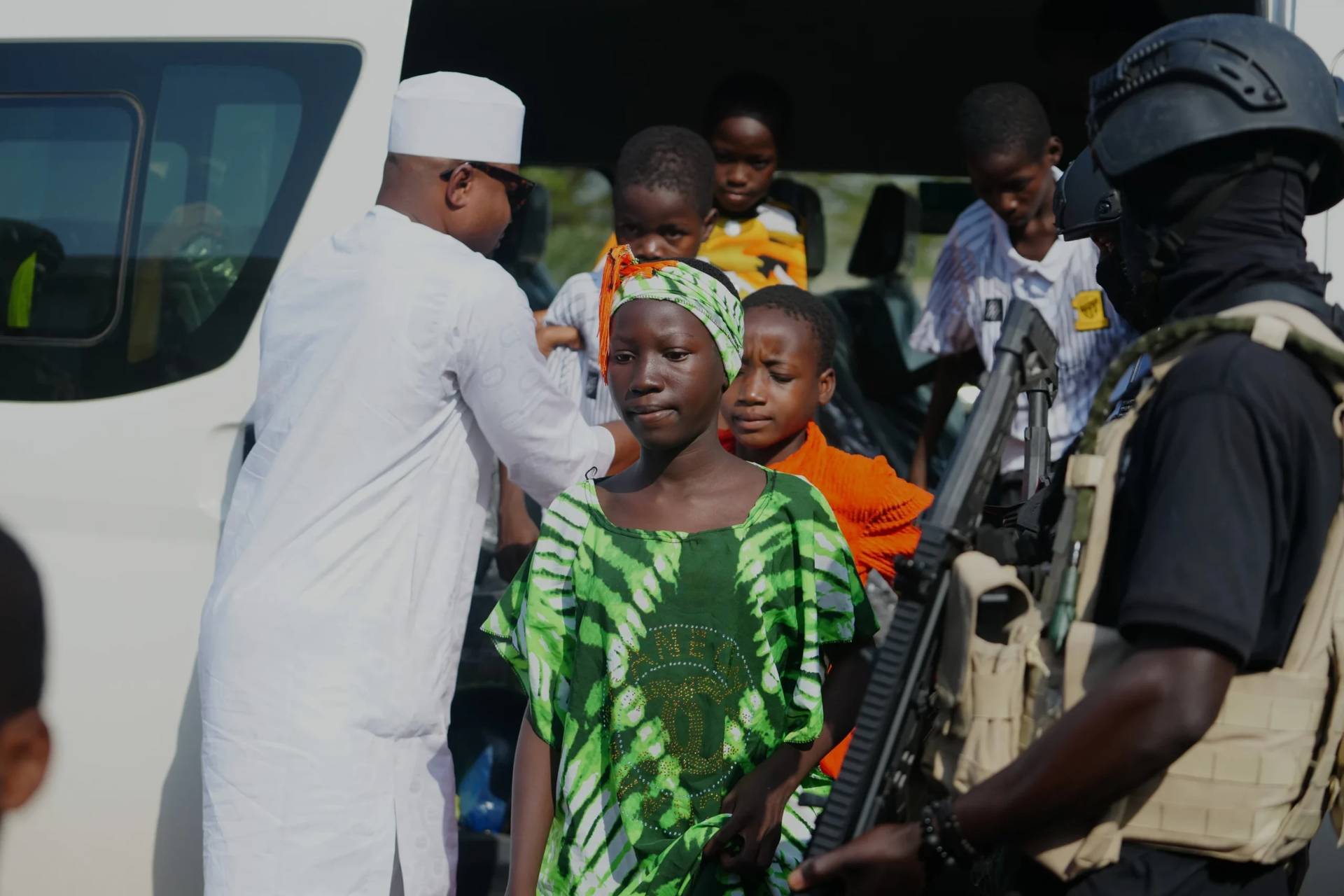YAOUNDÈ, Cameroon – In the wake of Tuesday’s deadly floods in Kinshasa, capital of the Democratic Republic of Congo, the country’s leading cleric, Cardinal Fridolin Ambongo, has said he’s “saddened” by the destructive nature of the disaster and expressed “compassion and spiritual and pastoral closeness” to victims.
Floods and landslides killed more than 140 people in Kinshasa on Tuesday following torrential rains. Flood waters submerged much of the capital, sweeping away homes, causing roads to collapse, sweeping vehicles under the rubble and cutting off power supplies.
Local media reports indicate that the deaths include nine members of the same family, including young children, who were killed when their house collapsed in the Binza Delvaux neighborhood of Kinshasa’s Ngaliema commune.
“Around 4:00 a.m., we were woken up by water coming into the house,” the Congolese Press Agency, ACP quotes one relative as saying.
“We channeled the water and, thinking there was no more danger, we went back to the house to sleep, we were soaked,” he added. The family went back to bed and “just after that the wall collapsed”.
“…We don’t know where to go. At the moment, our homes are under water,” said Jean-Marie Masiala of Maman Yemo quarter.
In a message Tuesday, Ambongo said he was saddened by the events.
“These torrential rains have once again caused enormous human and material damage, plunging many families and religious communities into desolation and distress,” the cardinal said.
“I am saddened by this state of affairs and would like to express all my compassion and all my spiritual and pastoral closeness to all those affected, and in particular to those who are currently without shelter or help,” he said.
Authorities in the country held a crisis meeting Tuesday to figure out how to deal with the crisis, but this was in the absence of the country’s President, Félix Tshisekedi, who is attending a US-Africa summit in Washington.
The presidency said on its verified twitter account that “the Head of State has learned, with great sorrow, the death of several people, including children, following the torrential rains that fell on Kinshasa on the night of Monday to Tuesday. The Head of State presents his deepest condolences to the bereaved families, asks the national and provincial governments to come to their aid and to accelerate the work of drainage of rainwater, to prevent this type of disaster from happening again.”
Tshisekedi lost no time in putting down the latest disaster, like earlier ones, to climate change.
He told U.S. Secretary of State Antony Blinken that while his country reels from the impact of climate change it did little to cause, scant attention is paid to it by those who caused the global climate to warm.
“This is really the very example of what we have been deploring and decrying for some time, this accompaniment that must come from the countries that pollute and, unfortunately, cause harmful consequences in our countries that do not have the means to protect themselves from it,” he said.
Expressing his condolences, Blinken said the floods were “further proof of the challenge of climate change that we must face together”.
In November 2019, some forty people died in Kinshasa, victims of heavy rains that caused flooding and landslides.
Recognizing the unpredictable nature of natural disasters, Ambongo nevertheless insisted that it still is within human power to mitigate the impacts of such disasters. He called on authorities in the largely Catholic African country to carry out improvements on urban hygiene and sanitation infrastructure as a way of reducing the impact of such disasters in future.
“Beyond the unpredictable character of natural bad weather, I believe that it is becoming increasingly urgent that the urban authority proceeds seriously with major sanitation, development and urbanization of the city of Kinshasa, in order to prevent and minimize the magnitude of such natural disasters,” he said.
“Furthermore, our responsibility in the common management of our environment is also involved,” Ambongo added.
It’s a point echoed by the governor of the city of Kinshasa, Gentiny Ngobila. In a communiqué published on Tuesday 13 December, he called on the people of Kinshasa to become collectively aware.
“This umpteenth tragedy invites us to a collective awareness on the imperative need to respect the urban planning rules by refraining from building on risky sites, throwing garbage in rivers and gutters whose role is to facilitate the evacuation of rainwater ” Gentiny Ngobila said.
“The anarchic constructions on the water evacuation infrastructure and on the river beds must absolutely stop”, he said.
From Washington, Tsisekedi declared three days of national mourning that begun December 14. The country’s deputy Prime Minister in charge of Interior told journalists that the government will bear the costs of the funerals.
“The mourning will be taken care of by the Government of the Republic”, said Daniel Aselo.
He said houses built on risky sites such as steep hills and marshy areas will be demolished and steps taken to resettle those displaced.

















